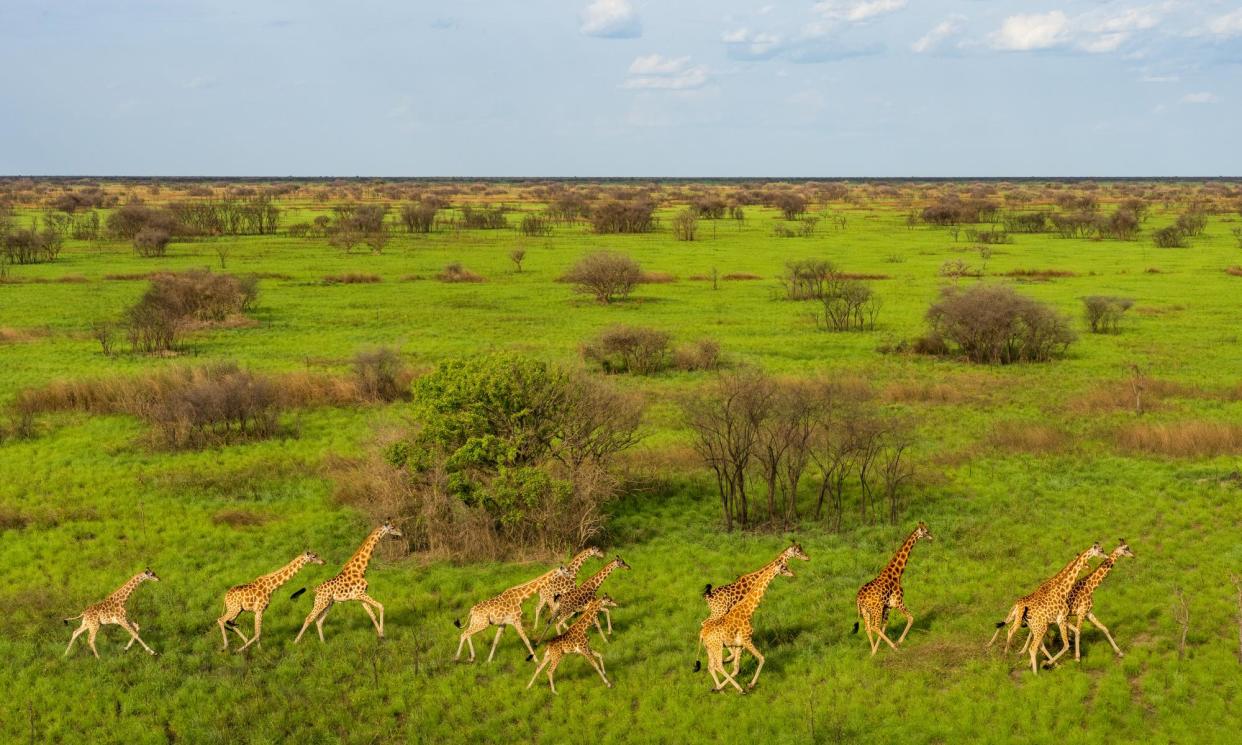UK among rich countries not paying fair share to restore nature – report

The UK, Canada, New Zealand, Italy and Spain are among the rich countries contributing less than half their fair share of nature finance to poor countries, a new report has found.
Developed nations have agreed to collectively contribute a minimum of $20bn annually for nature restoration in low and middle-income countries by 2025. This money is in addition to the $100bn agreed for climate finance.
So far, Norway and Sweden are the only two countries providing a fair amount, while the “overwhelming majority of developed countries do not provide even half of their fair share,” according to the report by the Overseas Development Institute (ODI) thinktank. The UK was providing about 24% of its commitment, while countries in southern and eastern Europe came at the bottom of the ranking, with Greece providing only about 10% of what it should, and Poland 5%.
Globally, nations are falling $11.6bn (£9.1bn) short on these financial commitments and must “dramatically scale up”, according to researchers who looked at each country’s progress based on 2021 data, which was the most recent to be released by governments. Some additional pledges have been made in the past three years but they do not “substantially move the needle”, experts say.
Rich countries are most responsible for the loss of nature globally over the past 60 years. The payments to poorer countries – which typically have the greatest reserves of biodiversity left and smaller ecological footprints – are designed to compensate for this overconsumption of the planet’s natural resources.
The report is the first analysis of how individual donor countries are delivering on their financial commitments made in the 2022 Kunming-Montreal Global Biodiversity Framework (GBF) at Cop15, where nature targets for the next decade were agreed upon.
Earth’s wildlife populations have plunged by an average of 69% in just under 50 years, and for decades nations have failed to meet UN targets to stop this decline.
“We hope this report serves as a wake-up call for high-income countries to fulfil their obligations,” said Laetitia Pettinotti, the lead author and a research fellow at ODI.
“Failing to reach the target undermines the UN convention on biological diversity and damages trust. But far more importantly, this failure represents a genuine threat to our shared prosperity, livelihoods, economies and health,” she said.
The 2022 Cop15 treaty had no details about much each country would contribute to the funding pot. This report calculates that by accounting for countries’ historical impact on nature, their gross national income and population to calculate how much each of the 28 donor countries needs to contribute to the $20bn.
Sara Pantuliano, the chief executive of ODI, said: “We are far from reaching this goal and must dramatically scale up our contributions within the next year.”
Collective agreements often shield wealthy nations from individual responsibility, she said: “Apportioning responsibility is a necessary step to enhance accountability, transparency and awareness.”
Germany and France come close to providing the necessary contributions, as does Australia.
Some countries have made financial contributions since 2021, according to an accompanying report by Campaign for Nature, which commissioned the research: 29 countries pledged to give the equivalent of $480m annually to the Global Environment Facility, while Canada, Germany, Japan, Luxembourg, Spain and the UK committed to giving $32m annually to the Global Biodiversity Framework Fund.
The report states: “While these are positive developments, it is not expected that these recent contributions substantially move the needle for those countries that are marked as below 50% of their fair share.”
Related: UN names veteran EU official Astrid Schomaker as new biodiversity chief
The US is not party to the GBF and therefore did not commit itself to contributing to the target. If it were included it would be one of the poorest performers, the report concluded.
Mary Robinson, the former president of Ireland, said: “The world is already spending $1.8tn each year on subsidising industries that are destroying nature. The pledge of $20bn a year is equivalent to only 1.1%, or about four days, of those subsidies. Wealthy governments have no excuse but to act with greater urgency.”
World leaders will come together at Cop16 in Cali, Colombia to review these financial commitments.
Dr Nicola Ranger, the director of the Resilient Planet Finance Lab at the University of Oxford, who was not involved in the research, said the overall findings were robust. She believes if the report fully accounted for the UK’s outsized impacts through global supply chains and finance for damaging sectors linked to pollution and deforestation, the country’s overall share of responsibility would be larger. “We’ve been turning the world’s nature capital into economic and financial capital for decades,” she said.
She added: “To meet our international commitments, the UK would need to accelerate our funding by a factor of four. It is right that the UK takes responsibility and plays its part in protecting biodiversity and meeting these global goals. But it is also squarely in our interests to do so … our economy is highly exposed to nature-related risks, of which half come from environmental damage overseas.”
Find more age of extinction coverage here, and follow biodiversity reporters Phoebe Weston and Patrick Greenfield on Twitter for all the latest news and features


